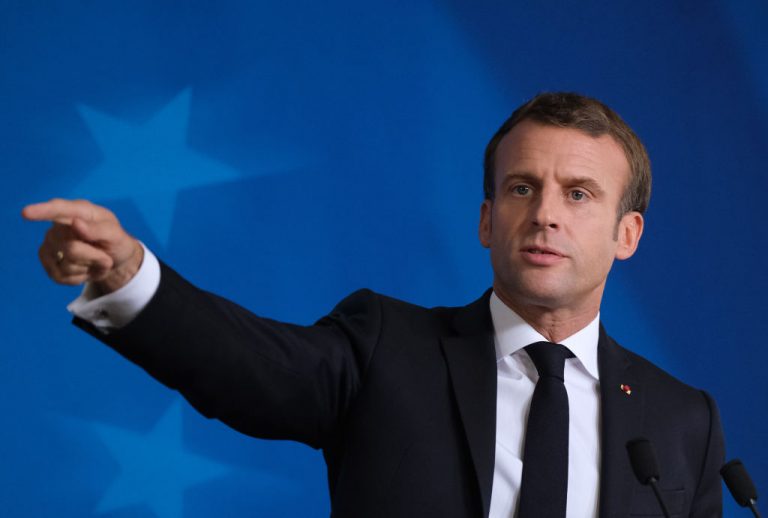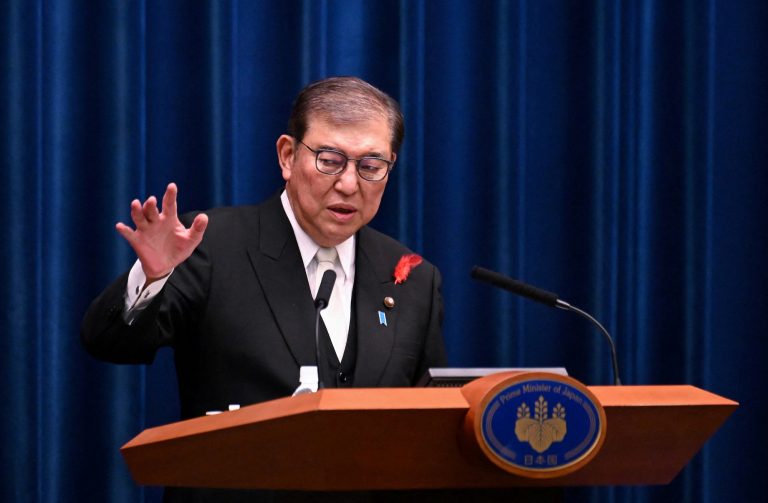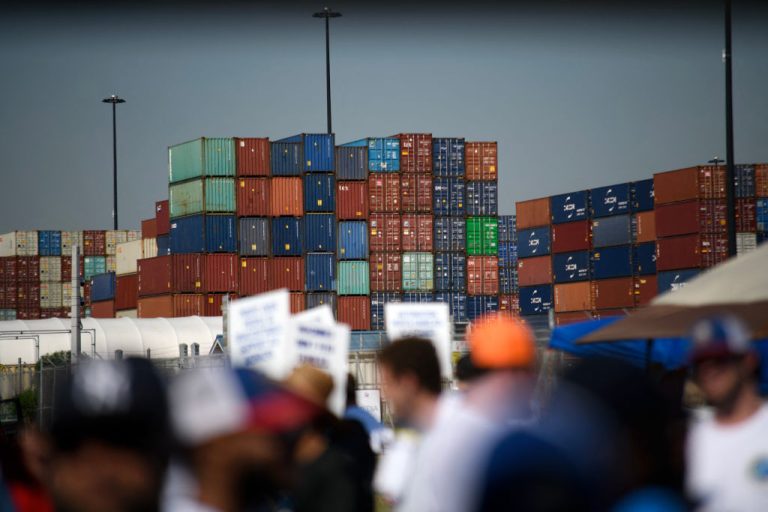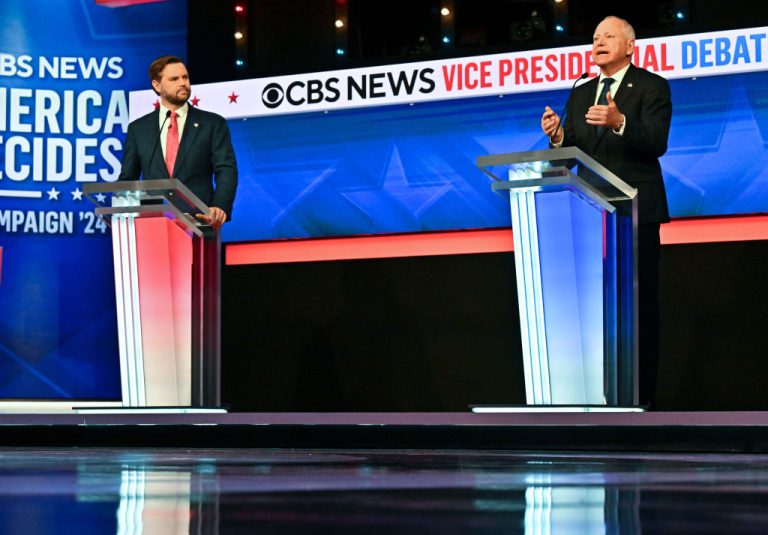In a move of solidarity, France has urged the EU to show a united front against China over an escalating trade conflict over Lithuania.
As it takes over the rotating presidency for the EU’s Council, French President Emmanuel Macron has pledged to make the bloc’s trade policy more assertive by “bolstering its defense arsenal in commercial disputes against China.”
After Lithuania’s decision to open a Taiwanese representative office in its capital of Vilnius in November 2021, China has called for a corporate boycott of the small Baltic nation. As retaliation for the warming diplomatic relations between the two, Chinese authorities not only cracked down on Lithuanian imports but also on goods from other EU countries — such as France, Germany and Sweden — that included parts from Lithuanian supply chains.
For the mainland Chinese regime, Taiwan (officially called the Republic of China) is seen as a renegade province that rightfully belongs to the communist People’s Republic. Though Beijing has indicated its preference for a peaceful “unification,” it does not rule out military force and has vowed to reclaim the island by any means necessary.
READ MORE:
Lithuania Facing Corporate Boycott Triggered by Beijing
China Pushing German Company to Stop Using Car Components From Lithuania
EU Response
The EU has plans to roll out a new trade policy labeled as an “anti-coercion instrument” for use in these kinds of governmental disputes. However, lawmakers say legislation could take years to fully enter into force and Paris has signaled that action over Lithuania would be needed well before then.
When asked whether Paris would push for EU action to resist Beijing before the anti-coercion instrument is ready, a senior French government official told reporters on Jan. 6, “Yes. We will take measures very quickly.”
Success
You are now signed up for our newsletter
Success
Check your email to complete sign up
“The anti-coercion instrument is still under negotiation, but maybe something can be done in advance in support of Lithuania,” he added.
“It is not clear what the determining reason for China’s behavior towards this country was,” the French official said in response to China’s crackdown against Lithuania. “Perhaps it was the Taiwan issue, but there was also the fact that Lithuania left the 17+1 mechanism that China had initiated. You know, we have always been extremely determined that this dialogue should be conducted at 27+1.”
The trade spat between the two countries is turning into a global geopolitical issue, where economic prowess is seen as critical in streamlining democratic principles. In response, Taiwan has vowed to create a $200 million fund to invest in Lithuanian tech industries to boost bilateral trade, while the U.S. has also promised to take action in support of the small country.
China denies wrongdoing while U.S. backs Lithuania
Although Chinese authorities have denied ordering a trade boycott on Lithuanian goods, the EU says it has verified reports of Lithuanian imports being blocked at customs. If diplomacy continues to fail, the European Commission says it is prepared to file a complaint with the World Trade Organization (WTO), citing corporate intimidation.
In an editorial posted on Chinese state-run newspaper Global Times, Beijing said there will be no “opportunity for trivial forces like Lithuania to lead the Western world to shake the one-China principle.”
Lithuania is “just a mouse, or even a flea, under the feet of a fighting elephant,” the editorial read.
In response to China’s icing tactics against Lithuania, U.S. Secretary of State Antony Blinken said on Jan. 5 during a joint press conference with Germany’s new foreign affairs minister, Annalena Baerbock, “We have immediate concern about the government of China’s attempts to bully Lithuania, a country of fewer than 3 million people,”
“The United States will work with our allies and partners, including Germany, to stand up against intimidation like this.”
“China is pushing European and American companies to stop building products with components made in Lithuania or risk losing access to the Chinese market,” Blinked added. “The United States will work with our allies and partners, including Germany, to stand up against intimidation like this.”Baerbock added that “We as Europeans stand in solidarity at Lithuania’s side.”







